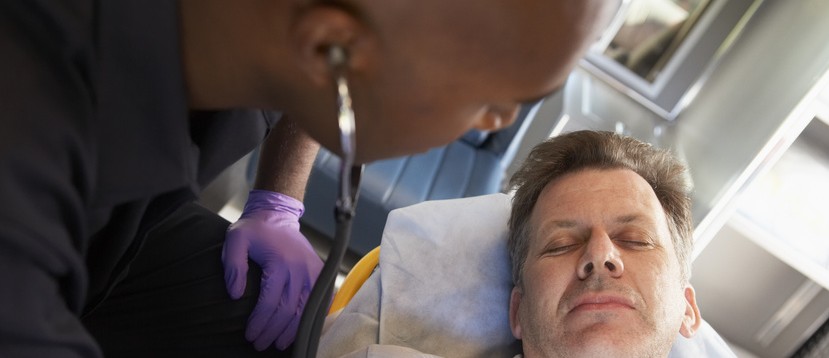
When I taught novice nursing students in fundamentals, in order to become proficient with every clinical skill I taught, students were expected to practice, practice, practice!
This included the basics of obtaining a manual blood pressure, heart rate, respiratory rate and temperature.
Once vital signs were taught and students were confident because of repeated practice, physical assessment was taught.
Theory content on each body system was reviewed, and how to properly use a stethescope to listen to the different types of breath sounds as well as heart sounds was introduced.
Students then repeatedly practiced assessment skills on each other until needed proficiency was obtained.
What does the practice of these nursing skills have to do with Socratic questioning?
Thinking like a nurse is also a skill that requires repeated practice in order for novice nursing students to become proficient.
It is also the most important skill that students must develop and become proficient in order to become a professional nurse.
Why Practice Nurse Thinking?
Last week’s blog on using Socratic questions in the clinical setting begs a point.
Would you expect your students to be safe and proficient in the clinical setting inserting a Foley catheter if they had no preparation or practice of this skill?
Absolutely not!
In the same way, how can you expect your students to develop proficiency with Socratic questions to develop nurse thinking if they have not been given opportunities to practice?
Socratic Questions vs Clinical Reasoning
Socratic questioning is similar but different than clinical reasoning.
Clinical reasoning is the essence of nurse thinking and is a construct unique to practice based professions such as nursing (see prior blog Why Clinical Reasoning is Foundational to Practice).
Once RELEVANT clinical data is identified by a student (key consctruct of clinical reasoning), use Socratic questions to assess and probe student thinking further, to determine the extent of student knowledge related to patient care or to analyze understanding of an essential concept or line of reasoning.
Socratic questions provide a practical tool for educators to assess and evaluate the critical thinking of students (Oermann, 1997).
How to Contextualize Socratic Questions to Practice
In order to transform nursing education, everything that is taught needs to be contextualized to the bedside (Benner, Sutphen, Leonard, & Day, 2010). This includes teaching a new thinking skill such as Socratic questioning to students.
Just as I use a salient clinical scenario to contextualize clinical reasoning with my clinical reasoning case studies, you can do the same with Socratic questions.
First, start with a salient scenario depending on the classroom topic or clinical setting.
Here is my scenario:
Faduma Ali is a 21 y.o. female with a history of type 1 diabetes mellitus since the age of 12, who presents to the ED with a 12 hour history of vomiting. She states this began two days prior to admission after she began having frequency and painful urination. She feels dizzy when she stands up. She does not consistently check her blood glucose and has not checked her glucose or taken insulin since she began feeling poorly two days ago. Faduma is thirsty but feels nauseated.
Faduma immigrates to Minnesota from Somalia with her parents at the age of 12. She speaks and understands English, but is not fluent.
But in order for the nurse to use Socratic questions, clinical reasoning must FIRST be utilized to identify what clinical data is RELEVANT.
RELEVANT data includes the following:
- History of type 1 diabetes mellitus since the age of 12
- 12 hour history of vomiting
- frequency and painful urination
- feels dizzy when she stands up.
- does not consistently check her blood glucose and has not checked her glucose or taken insulin since she began feeling poorly two days ago.
- thirsty but feels nauseated.
- immigrated to Minnesota from Somalia with her parents at the age of 12. She speaks and understands English, but is not fluent.
Then this relevant data must be correctly interpreted aided by Socratic type questions to make a correct clinical judgment.
The data in this scenario appears to point towards diabetic ketoacidosis. But there are no current labs or other clinical data available to support this assumption except a student’s DEEP understanding of pathophysiology and diabetes!
Socratic Questions to Ask
Here are the Socratic questions for this scenario that must be asked to probe and analyze the thinking of the student in order to make a correct clinical judgment (Oermann, 1997):
Clarification Questions
- What clinical data from this scenario is MOST important? Why?
Questions to Probe Assumptions
- Are you assuming that your client’s responses are due to DKA? Tell me more about your thinking here.
- What (relevant) data have you interpreted to determine your problem is DKA? What will be your nursing priority? Why?
Questions to Probe Reasons
- What are other possible reasons for this clinical presentation?
- What would do if the patient became nauseated and had a large emesis? Why?
Questions on Differing Perspectives
- How might the client/family may view this situation because of their psychosocial history?
Questions on Consequences
- If Faduma becomes lightheaded and tachycardic, what would you expect to happen next? Why?
Prevent Failure to Rescue
I am not insisting that students become clinicians/practioners and diagnose diabetic ketoacidosis in this scenario.
Instead, students must develop a knowledge base that can apply essential content to the bedside so that they recognize relevant clinical data and a potential problem even if they are unable to specifically identify what it may be and communicate the concern to the primary care provider.
Students must develop a sense of salience each time they come in contact with their patient because the status could change anytime. Nurses will not always have the luxury of a clinical diagnosis and labs to support identification of the primary medical problem.
This is the level of thinking that new nurses are expected to have acquired in school in order to be safe in practice.
Now is the time to prepare your students to rescue so they do not “fail to rescue” when a change in patient status goes unrecognized until it is too late (Clarke & Aiken, 2013).
In Closing
The most important skill that your students must be proficient in before they graduate is the ability to think like a nurse.
Socratic questions can be used to evaluate critical thinking and deepen and strengthen the reasoning and assumptions a student may have to identify if they are on the right or wrong clinical path.
Just like in simulation when a student makes an incorrect assumption and the patient will deteriorate and may even code, by integrating Socratic questions through the use of simple clinical scenarios, students can obtain the practice needed to become proficient with this essential nurse thinking skill.
If this is a weakness in your program, make it a strength by simply changing the way you teach by utilizing Socratic questions in the class and clinical settings.
By evaluating critical thinking, you can be confident that after graduation your students can think like a nurse and be well prepared for professional practice!
What do you think?
How do you use questions to develop the thinking of nursing students in your class or clinical settings?
Comment below and let the conversation begin!
References
- Benner, P., Sutphen, M., Leonard, V., & Day, L. (2010). Educating nurses: A call for radical transformation. San Francisco, CA: Jossey-Bass.
- Clarke, S.P. & Aiken, L.H. (2003). Failure to rescue. American Journal of Nursing, 103, 42-47.
- Oermann, M. (1997). Evaluating critical thinking in clinical practice. Nurse Educator, 22(5), 25-28.
Keith Rischer – PhD, RN, CEN
As a nurse with over 35 years of experience who remained in practice as an educator, I’ve witnessed the gap between how nursing is taught and how it is practiced, and I decided to do something about it! Read more…
The Ultimate Solution to Develop Clinical Judgment Skills
KeithRN’s Think Like a Nurse Membership
Access exclusive active learning resources for faculty and students, including KeithRN Case Studies, making it your go-to resource.



